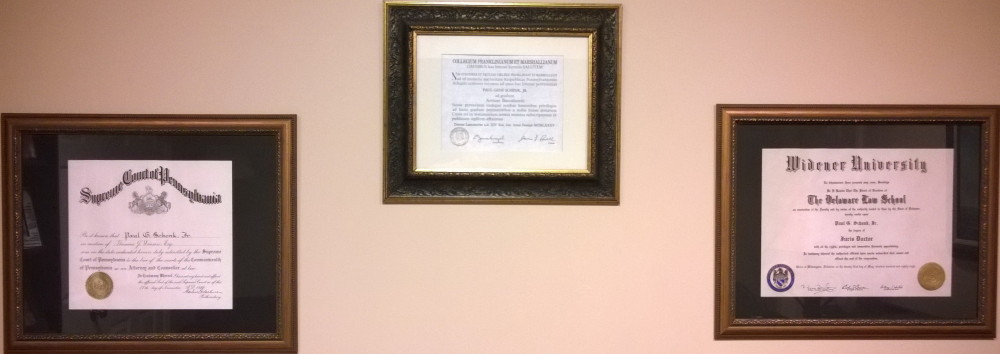THIS ARTICLE IS INTENDED TO SUPPORT THE READER’S AWARENESS AND UNDERSTANDING. IT IS NOT LEGAL ADVICE. IF THE READER SEEKS LEGAL ADVICE CONCERNING HIS OR HER PARTICULAR SITUATION, HE OR SHE SHOULD SEEK OUT AN ATTORNEY IN A LAWYER CLIENT RELATIONSHIP.
There is a presumption of “undue influence” when a child in a confidential relationship with a grantor parent receives a substantial portion of that grantor parent’s property during that grantor’s lifetime. The donee child has the burden of showing by clear and convincing evidence that a fair and reasonable use has been made of the confidence , that the transfer of the property was the deliberate and voluntary act of the grantor and that the transaction was fair, proper and reasonable under the circumstances.
In Maryland, in the case of an inter vivos (i.e. lifetime) gift, persons ordinarily desire to retain possession and use of their property while they are alive. If someone who stands in a fiduciary or confidential relationship with another exerts any influence on that person to obtain an inter vivos transfer of the person’s property, for less than full value, that influence is regarded, at least presumptively, as undue and requires an explanation. The exertion of influence for personal gain is, itself, a breach of the trust implicit in the confidential relationship, especially when it causes the person reposing trust to be deprived of his or her property. The confidential relationship itself requires the dominant party to abstain from all selfish projects. See Upman v. Clarke 359 Md. 32 (Md. 2000) . The general rule to be that “he who bargains in a matter of advantage with a person placing confidence in him, is bound to show that a reasonable use has been made of that confidence ” See Upman citing Vocci v. Ambrosetti, 201 Md. 475, 485, 94 A.2d 437, 442 (1953).
In Pennsylvania, where a principal grants a power of attorney to another, it is a clear indication of a confidential relationship. Foster v. Schmitt, 429 Pa. 102, 239 A.2d 471, 474 (1968). Thus, an agent under a power of attorney must act loyally for the benefit of the principal and act impartially for the principal’s best interest. The agent must attempt to preserve the principal’s estate plan if that plan is consistent with the principal’s best interest based on all relevant factors. Such relevant factors include both the principal’s foreseeable obligations and need for maintenance as well as the principal’s eligibility for a benefit, program or assistance under a statute or regulation. 20 Pa. C.S.A. § 5601.3 (b)(1)(2)(6)(ii)
In the case of an inter vivos ( i.e. lifetime ) gift, the existence of a confidential relationship shifts the burden to the donee to show the fairness and reasonableness of the transaction. See Upman. Once the relationship is proved, the plaintiff is relieved from the necessity of proving the actual exercise of overweening influence, misrepresentation, importunity, or fraud, and the defendant has the burden of showing that a fair and reasonable use has been made of the confidence, that the transfer of the property was the deliberate and voluntary act of he grantor and that the transaction was fair, proper and reasonable under the circumstances. See Upman citing Sanders v.Sanders, 261 Md. 268, 276, 274 A.2d 383, 388 (1971). The donee’s burden is a “heavy” one establishing by clear and convincing evidence that there has been no abuse of the confidence See Upman citing Wenger v. Rosinsky, 232 Md. 43, 49, 192 A.2d 82, 86 (1963) In the context of an inter vivos transfer, where a confidential relationship exists, the courts will not allow a transaction between the parties to stand unless there is a full and fair explanation of the whole transaction. See Upman citing Green v. Michael, 183 Md. 76, 84, 36 A.2d 923, 926 (1944)
In Pennsylvania, there is a presumption of undue influence when clear and convincing evidence demonstrates a prima facie case that a person in a confidential relationship with a testator or grantor of weakened intellect receives a substantial portion of the grantor’s property . In re: Paul’s Estate, 180 A.2d 254 (Pa. 1962). Once a presumption of undue influence arises, the burden of proof shifts and undue influence must be disproved by clear and convincing evidence. Owens v. Mazzei, 847 A. 2d 700 (Pa. Super. 2004) .
